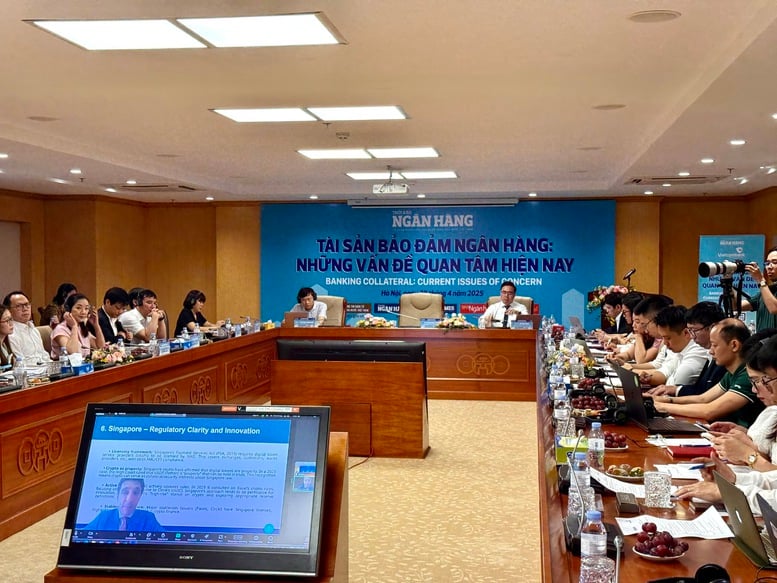
Workshop "Bank collateral - Current issues of concern" - Photo: VGP/HT
On April 28, in Hanoi , Banking Times organized a workshop on "Banking collateral - Current issues of concern" with nearly 100 delegates, including experts, policy makers and representatives of financial institutions, discussing the legal mechanism for digital assets and carbon credits.
Research on recognizing digital assets and carbon credits as collateral
In the context of Vietnam's economy growing strongly and integrating deeply with the region and the world. The Government and the Prime Minister have issued many policies to promote digital transformation in the banking sector, develop green economy, circular economy, including content related to digital assets and carbon credits. Such as Decision No. 411/QD-TTg dated March 31, 2022 approving the National Strategy for Digital Economy and Digital Society Development to 2025, with a vision to 2030; Decision No. 1437/QD-TTg dated November 20, 2024 of the Prime Minister promulgating the National Action Plan on Digital Economy Development for the 2024-2025 period; Decision No. 232/QD-TTg dated January 24, 2025 of the Prime Minister approving the Project on establishing and developing a carbon market in Vietnam... These are typical examples demonstrating the Government's determination to gradually shape the ecosystem for emerging asset classes such as digital assets and carbon credits.
On the banking sector side, implementing Directive No. 05/CT-TTg dated March 1, 2025 of the Prime Minister, the State Bank of Vietnam in coordination with the Ministry of Finance is urgently and actively researching to propose a legal framework to manage and promote the development of digital assets and digital currencies. This is an important step to create a clear and transparent legal corridor for this field, while promoting innovation and ensuring a safe investment environment.
The rapid development of the digital economy, along with the global green transformation trend, has fundamentally changed the face of the financial market. In this context, digital assets and carbon credits have emerged not only as new business tools, but also as assets with great economic value. However, when compared to traditional assets such as real estate, machinery and equipment or securities, it is clear that the legal framework for digital assets and carbon credits in Vietnam is still open.
In fact, some countries have recognized digital assets as collateral and Vietnam is in the early stages of developing a definition and legal framework for this type of asset. This demonstrates the necessary caution to control risks. However, if we delay, we may miss the opportunity to exploit valuable assets to serve the development of the green economy and the digital economy.
According to Dr. Le Thi Giang (University of Law): The current legal system only defines assets by listing (Article 105 of the 2015 Civil Code) without expanding to include digital assets or carbon credits. Therefore, in reality, although digital assets exist and are commonly traded, they still do not have enough legal basis to become collateral in bank credit transactions.
In addition, according to many experts at the Workshop, the lack of a legal framework not only makes banks hesitant to accept digital assets as collateral, but also makes it difficult to determine the value and handle assets when risks arise. Therefore, the early completion of the law to recognize and regulate digital assets and carbon credits in bank credit activities is considered an urgent requirement.
Should refer to international experience
In the journey to build a legal framework for new collateral, international experience clearly offers many lessons.
Dr. Giacomo Merello cited the case of Switzerland becoming the first country in the world to allow digital assets such as Bitcoin and Ethereum to be used as collateral at the SIX Stock Exchange. This not only created a breakthrough in diversifying collateral assets but also helped Switzerland affirm its position as a leading country in financial innovation. In February 2025, SIX launched the Digital Collateral Service, allowing organizations to use cryptocurrencies (BTC, ETH) as collateral along with traditional securities.
This solution helps reduce counterparty risk and optimize operations. Banks like Bitcoin Suisse offer crypto-collateralized loans. Clients can use a variety of crypto assets (BTC, ETH, DOT, USDC...) as collateral for a fiat loan, with the assets securely stored in cold storage. This reflects Switzerland's strong crypto custody and risk management capabilities.
Similarly, Singapore passed the Payment Services Act (PSA) in 2019, establishing a transparent legal framework for digital asset exchanges and custody service providers. Not only that, Singapore also recognized digital tokens as collateral, paving the way for a series of new financial products to emerge.
The Monetary Authority of Singapore (MAS) is constantly updating its regulations. In 2025, MAS consulted on Basel's crypto regulations, focusing on stablecoins (like Circle's USDC). Singapore's approach is often flexible to foster innovation, softening Basel's "high risk" stance on crypto...
Malta, with its ambition to become a "blockchain island", has also pioneered the promulgation of the Virtual Financial Assets Law, while strongly promoting the tokenization of financial debts.
Malta is looking into licensing crypto banks and other innovative services, showing openness to integrating digital assets into the banking sector.
Dr. Giacomo Merello commented: About 17 million Vietnamese people hold digital assets (as of 2024), with a market value of more than 100 billion USD. Vietnam ranks 5th globally in terms of interest in crypto and 3rd in terms of exchange usage, showing very strong domestic demand.
Vietnam is building a legal framework for crypto. The draft law defines “digital assets” and envisages establishing a fintech sandbox where licensed crypto trading can begin (expected around July 2026). This approach is similar to many countries that have adopted the special zone model.
In addition to the advantages, Vietnam also faces some challenges such as having to address anti-money laundering and counter-terrorism financing (AML/CFT) and tax requirements (for example, the proposed 0.1% tax on crypto transactions). Regulators need to balance promoting innovation and protecting the banking system through requiring collateral transparency and monitoring loan-to-value (LTV) ratios.
"Only when the legal framework is clear, transparent and updated promptly with technological trends can we fully exploit the potential of digital assets and carbon credits in the banking sector, while controlling related risks," said Dr. Giacomo Merello.
From the current situation and international experience, Dr. Le Thi Giang (University of Law) has made some practical proposals to build a suitable legal framework for Vietnam.
First, it is necessary to clearly establish the legal status of digital assets and carbon credits in the Civil Code. Adding the concept of digital assets to the law will create the premise for recognizing them as the subject of secured transactions, instead of being limited to the scope of traditional assets as it is now.
Second, in addition to amending the Civil Code, it is necessary to amend and supplement Decree 21/2021/ND-CP on secured transactions. Accordingly, it details the methods of mortgaging and depositing digital assets and carbon credits, and guides the process of storing, valuing and handling these assets.
Third, develop a separate set of standards for the valuation of digital assets and carbon credits in credit transactions. Because of their highly volatile nature, the valuation of digital assets is very different from that of conventional physical assets. There is a need for independent, licensed valuation organizations with in-depth expertise in digital assets and green finance.
Experts say that Vietnam needs to establish a sandbox mechanism (controlled experimentation) in the field of digital assets and carbon credits. This allows new models to be tested in a safe legal environment, thereby gradually adjusting regulations to suit reality without posing risks to the financial system. In the long term, it is necessary to promote international cooperation on mutual recognition of digital assets and carbon credits, especially in cross-border transactions. Thus, Vietnamese banks will not only access domestic capital, but also expand opportunities for international cooperation and capital mobilization.
Mr. Minh
Source: https://baochinhphu.vn/hoan-thien-khung-phap-ly-cho-tai-san-so-tin-chi-carbon-trong-tin-dung-ngan-hang-102250428131549206.htm



![[Photo] Prime Minister Pham Minh Chinh receives a bipartisan delegation of US House of Representatives](https://vphoto.vietnam.vn/thumb/1200x675/vietnam/resource/IMAGE/2025/5/28/468e61546b664d3f98dc75f6a3c2c880)


![[Photo] Vietnamese and Hungarian leaders attend the opening of the exhibition by photographer Bozoky Dezso](https://vphoto.vietnam.vn/thumb/1200x675/vietnam/resource/IMAGE/2025/5/29/94d8ceca5db14af3bf31285551ae4bb3)
![[Photo] Prime Minister Pham Minh Chinh meets with Hungarian President Sulyok Tamas](https://vphoto.vietnam.vn/thumb/1200x675/vietnam/resource/IMAGE/2025/5/29/dbcaa73e92ea4448a03fe1d0de6d68e8)



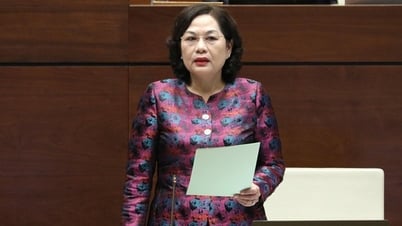


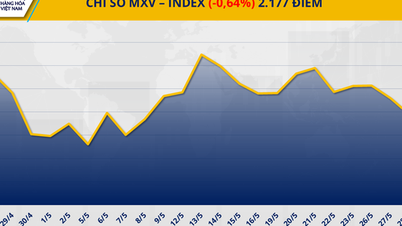
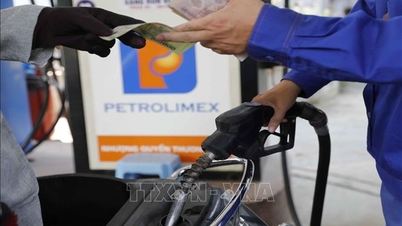





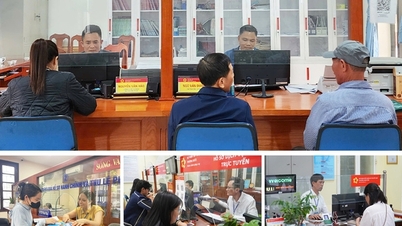


























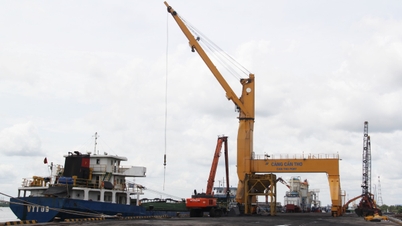


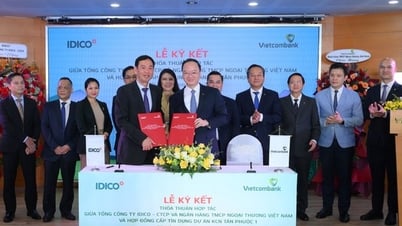






































Comment (0)